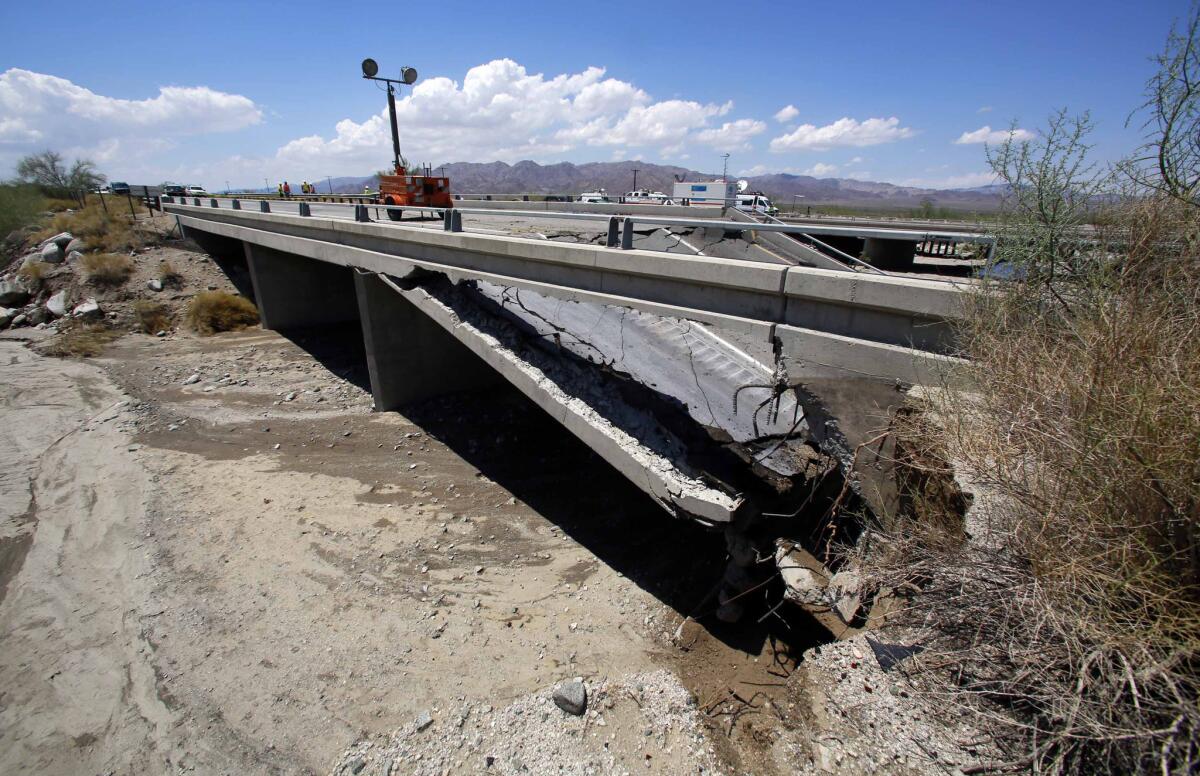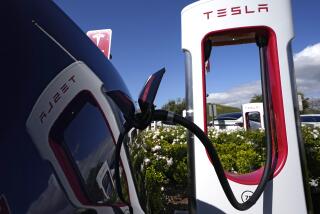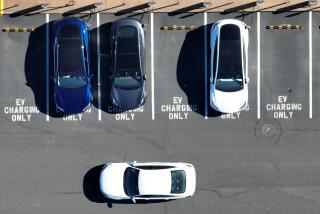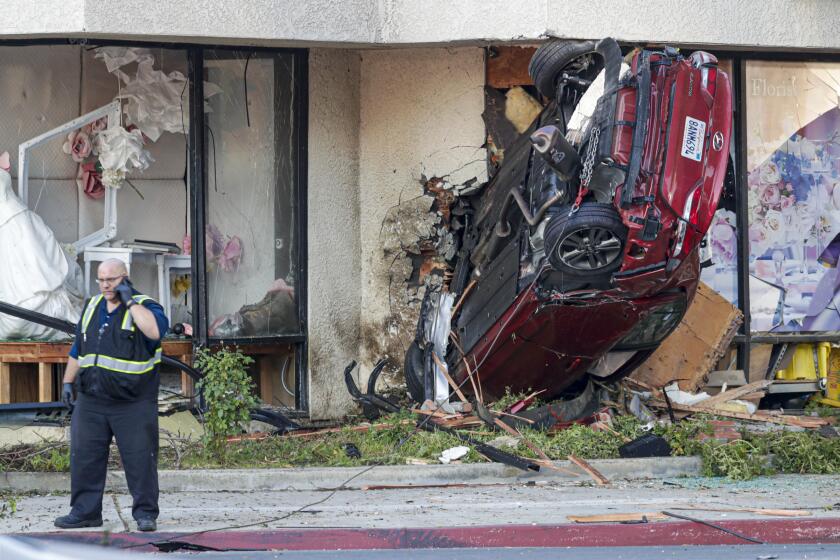Editorial: Working to bridge the highway funding gap

Damage is seen from a washed out bridge near the town of Desert Center, Calif., along Interstate I-10, on July 20. All traffic along one of the major highways connecting California and Arizona was blocked when the bridge over a desert wash collapsed during a major storm, and the roadway in the opposite direction sustained severe damage.
The collapse of a bridge on Interstate 10 between California and Arizona last weekend brought into sharp focus an alarming statistic: More than 60,000 bridges in the United States are structurally deficient. The money to fix such problems in the highway system, however, is increasingly hard to come by in an era of fuel-efficient vehicles. Authorization for the current federal highway program, which is financed mainly with gasoline taxes, is due to expire at the end of the month, which would leave the Highway Trust Fund empty within a few weeks. And even if it is renewed, the revenue from the federal gas tax isn’t keeping up with the demand for construction dollars.
The simplest solution — raising the gas tax — has been stymied by GOP opposition, and alternatives that are better adapted to fuel-efficient cars, such as a fee charged per mile driven, seem years away. As a result, lawmakers are left to choose between stopgap measures. The Senate on Tuesday started considering one from Sen. Barbara Boxer (D-Calif.) and Senate Majority Leader Mitch McConnell (R-Ky.), which would cobble together three years’ worth of money for the trust fund by cutting costs at the Federal Reserve Bank, selling more oil out of the Strategic Petroleum Reserve, barring Social Security payments to fugitive felons and adjusting a hodgepodge of taxes and fees.
The authors deserve credit for proposing to supplement the dwindling trust fund, which some conservatives aren’t willing to do. But some leading members of the House and Senate tax-writing committees and the Obama administration want to aim higher. The House has proposed to extend the current highway program for five months, buying time for lawmakers to work out a corporate tax change that could replenish the trust fund for several years.
One problem with the tax code is that it encourages multinational corporations to leave their foreign subsidiaries’ profits overseas, where they aren’t taxed by Washington. Lawmakers have been working with the administration on a way to encourage multinationals to reinvest more of their “locked out” foreign profits here without increasing their incentive to move jobs and earnings out of the country. The plan would include a one-time tax on the estimated $2.1 trillion in profits stashed overseas, which would be directed into the Highway Trust Fund.
When Sens. Rob Portman (R-Ohio) and Charles Schumer (D-N.Y.) floated the outline of such a plan this month, critics complained that it would prompt multinationals to slash their U.S. taxes by moving operations out of the country. But the current system is already motivating companies to transfer key assets to tax havens or, worse, to shift their tax headquarters overseas by acquiring a foreign rival. Although getting the details of a new system right won’t be easy, it’s worth holding up the highway bill to give lawmakers and the administration the chance to try.
Follow the Opinion section on Twitter @latimesopinion and Facebook
More to Read
A cure for the common opinion
Get thought-provoking perspectives with our weekly newsletter.
You may occasionally receive promotional content from the Los Angeles Times.






